In the foreign exchange market, the trading position known as a nano lot is the smallest one that can be taken, and it is not very common for brokers to offer these positions. In foreign exchange trading, a nano lot is equal to one hundred base currency units and equals one one-hundredth of one millionth of a centimetre.
Nano lots on Forex trading accounts allow you to trade even with the smallest account for a cost of $0.0001 per pip. The cost of trading with a conventional Forex account is $10 per pip, compared to $0.10 per pip for a micro lot. Nano lot Forex brokers allow traders to start small and trade on smaller Forex currency pair price movements.
A nano lot is equal to one hundred units of a base currency and is ten times smaller than a micro lot. When dealing in nano lots and nano lot brokers, one point in the price of an exchange rate that is denominated in US dollars is equivalent to one hundredth of a dollar. Some nano Forex brokers will even allow their nano traders to trade for as little as ten dollars.
The foreign exchange market (Forex) is a highly leveraged trading market that is used for speculation on the value of various currencies. Forex traders are able to purchase large quantities of currency units with relatively small amounts of capital. The use of leverage in trading is high risk, but investors can choose from a variety of account types designed specifically to assist them in risk management with tools like stop losses and negative balance protection on nano Forex accounts.
Before choosing which kind of forex account to open, the currency trader needs to give some thought to what they want to get out of their foreign exchange trading account. Because there is so much leeway in determining the size of the position you take in a trade, the Foreign Exchange (Forex) market is an excellent one in which to participate in financial transactions.

🤴 IC Markets is Used By: 180,000
⚡ IC Markets is Regulated by: Australian Securities and Investments Commission (ASIC), Financial Services Authority (FSA), Cyprus Securities and Exchange Commission (CySEC)
💵 What You Can Trade with IC Markets: Forex, Majors, Energies, Metals, Agriculturals,
💵 Instruments Available with IC Markets: 232
📈 IC Markets Inactivity Fees: No
💰 IC Markets Withdrawal Fees: No
💰 IC Markets Payment Methods: Credit Cards, VISA, MasterCard, Debit Cards, Visa, MasterCard, Bank Transfer, PayPal, Neteller, Neteller VIP, Skrill, Poli, Cheque, BPAY, UnionPay, FasaPay, QIWI, RapidPay, Klarna, Electronic wallets (eWallets), Broker to Brokers, Thai Internet Banking, Vietnamese Internet Banking,
IC Markets Risk warning : Losses can exceed deposits

🤴 Roboforex is Used By: 10,000
⚡ Roboforex is Regulated by: RoboForex Lid is regulated by Belize FSC, License No. 000138/7, reg. number 000001272
💵 What You Can Trade with Roboforex: Forex, Minors, Majors, Exotics, Indices, Metals,
💵 Instruments Available with Roboforex: 100
📈 Roboforex Inactivity Fees: No
💰 Roboforex Withdrawal Fees: Yes
💰 Roboforex Payment Methods: Credit cards, VISA, MasterCard, JCB, Debit cards, Bank Transfer, Electronic wallets (eWallets), Neteller, Skrill, Perfect Money, AdvCash, BPAY, China UnionPay, FasaPay, CashU, WeChat Pay, ecoPayZ, AstroPay, Sofort, Giropay, Poli, Wepay, iDEAL, Payoneer,
Roboforex Risk warning : Losses can exceed deposits

🤴 AvaTrade is Used By: 200,000
⚡ AvaTrade is Regulated by: Central Bank of Ireland, Australian Securities and Investments Commission (ASIC), Financial Services Authority (FSA), South African Financial Sector Conduct Authority (FSCA), Financial Stability Board (FSB), Abu Dhabi Global Markets (ADGM), Financial Regulatory Services Authority (FRSA), British Virgin Islands Financial Services Commission (BVI)
💵 What You Can Trade with AvaTrade: Forex, Minors, Cryptocurrencies, Majors, Exotics, Indices, UK Stocks, US Stocks, Energies, Metals, Agriculturals, ETFs, IPO, Bonds,
💵 Instruments Available with AvaTrade: 1000
📈 AvaTrade Inactivity Fees: No
💰 AvaTrade Withdrawal Fees: No
💰 AvaTrade Payment Methods: Credit cards, VISA, MasterCard, Bank Transfer, Electronic wallets (eWallets), PayPal, Neteller, WebMoney, Payoneer,
AvaTrade Risk warning : 71% of retail CFD accounts lose money

🤴 FP Markets is Used By: 10,000
⚡ FP Markets is Regulated by: Australian Securities and Investments Commission (ASIC), Cyprus Securities and Exchange Commission (CySEC), Financial Services Authority (St. Vincent and the Grenadines)
💵 What You Can Trade with FP Markets: Forex, Minors, Majors, Exotics, Indices, Metals,
💵 Instruments Available with FP Markets: 100
📈 FP Markets Inactivity Fees: No
💰 FP Markets Withdrawal Fees: No
💰 FP Markets Payment Methods: Credit cards, VISA, MasterCard, Debit cards, Bank Transfer, Electronic wallets (eWallets), Neteller, BPAY, POLi, PayPal, Neteller, Skrill, PayTrust, NganLuong VN, Fasapay, Broker to Broker, OnlinePay China, Directa24, Klarna, PayTrust88, Payoneer,
FP Markets Risk warning : Losses can exceed deposits
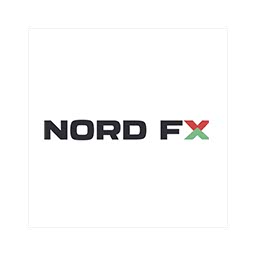
🤴 NordFX is Used By: 10,000
⚡ NordFX is Regulated by: Cyprus Securities and Exchange Commission (CySEC), License No: 209/13
💵 What You Can Trade with NordFX: Forex, Majors, Metals,
💵 Instruments Available with NordFX: 50
📈 NordFX Inactivity Fees: No
💰 NordFX Withdrawal Fees: No
💰 NordFX Payment Methods: Bank Transfer, Neteller, PerfectMoney, WebMoney, FasaPay, CashU, Payza, QIWI,
NordFX Risk warning : Losses can exceed deposits

🤴 XTB is Used By: 250,000
⚡ XTB is Regulated by: Financial Conduct Authority (FCA), FCA number FRN 522157, Cyprus Securities and Exchange Commission (CySEC), CySEC Licence Number: 169/12, Comision Nacional del Mercado de Valores, Komisja Nadzoru Finansowego, Belize International Financial Services Commission (IFSC) under license number IFSC/60/413/TS/19, Polish Securities and Exchange Commission (KPWiG), Dubai Financial Services Authority (DFSA), Dubai International Financial Center (DIFC),Financial Sector Conduct Authority (FSCA), XTB AFRICA (PTY) LTD licensed to operate in South Africa
💵 What You Can Trade with XTB: Forex, Minors, Cryptocurrencies, Majors, Exotics, Indices, UK Stocks, US Stocks, Pennystocks, Energies, Metals, Agriculturals, ETFs,
💵 Instruments Available with XTB: 4000
📈 XTB Inactivity Fees: Yes
💰 XTB Withdrawal Fees: No
💰 XTB Payment Methods: Credit cards, MasterCard, Maestro, Visa, Debit cards, Bank Transfer, Electronic wallets (eWallets), PayPal, Neteller, Skrill, Poli, Paysafe, Payoneer,
XTB Risk warning : 76% - 83% of retail investor accounts lose money when trading CFDs with this provider. You should consider whether you understand how CFDs work and whether you can afford to take the high risk of losing your money.

🤴 Pepperstone is Used By: 89,000
⚡ Pepperstone is Regulated by: Financial Conduct Authority (FCA), Australian Securities and Investments Commission (ASIC), Cyprus Securities and Exchange Commission (CySEC), Federal Financial Supervisory Authority (BaFin), Dubai Financial Services Authority (DFSA), Capital Markets Authority of Kenya (CMA), Pepperstone Markets Limited is incorporated in The Bahamas (number 177174 B), Licensed by the Securities Commission of the Bahamas (SCB) number SIA-F217
💵 What You Can Trade with Pepperstone: Forex, Minors, Cryptocurrencies, Majors, Exotics, Indices, Energies, Metals,
💵 Instruments Available with Pepperstone: 100
📈 Pepperstone Inactivity Fees: Yes
💰 Pepperstone Withdrawal Fees: No
💰 Pepperstone Payment Methods: Credit cards, VISA, MasterCard, Debit cards, Bank Transfer, Electronic wallets (eWallets), PayPal, Neteller, BPAY, POLi, UnionPay, FasaPay, QIWI, Payoneer,
Pepperstone Risk warning : CFDs are complex instruments and come with a high risk of losing money rapidly due to leverage. Between 74-89 % of retail investor accounts lose money when trading CFDs. You should consider whether you understand how CFDs work and whether you can afford to take the high risk of losing your money

🤴 XM is Used By: 10,000,000
⚡ XM is Regulated by: Financial Services Commission (FSC), Cyprus Securities and Exchange Commission (CySEC), Australian Securities and Investments Commission (ASIC)
💵 What You Can Trade with XM: Forex, Stock CFDs, Commodity CFDs, Minors, Majors, Exotics, Equity Indices CFD, Energies CFD, Precious Metals
💵 Instruments Available with XM: 1000
📈 XM Inactivity Fees: Yes
💰 XM Withdrawal Fees: No
💰 XM Payment Methods: Credit cards, Debit cards, Bank Transfer, Electronic wallets (eWallets), Moneta, ABAQOOS, PRZELEWY24, Neteller, PerfectMoney, WebMoney, UnionPay, FasaPay, CashU, Payza, QIWI, SOFORT, Giropay, Payoneer, Skrill,
XM Risk warning : CFDs are complex instruments and come with a high risk of losing money rapidly due to leverage. 77.74% of retail investor
accounts lose money when trading CFDs with this provider. You should consider whether you understand how CFDs work and whether you can afford
to take the high risk of losing your money.

🤴 eToro is Used By: 20,000,000
⚡ eToro is Regulated by: Financial Conduct Authority (FCA), Cyprus Securities and Exchange Commission (CySEC), Markets In Financial Instruments Directive (MiFID), Australian Securities and Investments Commission (ASIC)
💵 What You Can Trade with eToro: Forex, Minors, Cryptocurrencies, Majors, Exotics, Indices, UK Stocks, US Stocks, Energies, Metals, Agriculturals, ETFs,
💵 Instruments Available with eToro: 2000
📈 eToro Inactivity Fees: Yes
💰 eToro Withdrawal Fees: Yes
💰 eToro Payment Methods: Credit cards, VISA, MasterCard, Maestro, Debit Cards, Bank Transfer, PayPal, Neteller, Skrill, WebMoney, Giropay, eWallets,
eToro Risk warning : 51% of retail investor accounts lose money when trading CFDs with this provider.
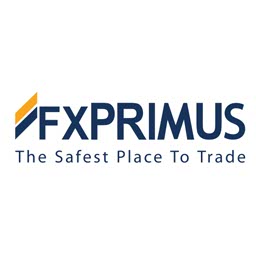
🤴 FXPrimus is Used By: 10,000
⚡ FXPrimus is Regulated by: Cyprus Securities and Exchange Commission (CySEC), Markets In Financial Instruments Directive (MiFID), Vanuatu Financial Services Commission (VFSC)
💵 What You Can Trade with FXPrimus: Forex, Minors, Majors, Exotics, Indices, UK Stocks, US Stocks, Energies, Metals,
💵 Instruments Available with FXPrimus: 130
📈 FXPrimus Inactivity Fees: No
💰 FXPrimus Withdrawal Fees: Varies
💰 FXPrimus Payment Methods: Credit cards, VISA, MasterCard, Debit cards, Bank Transfer, Electronic wallets (eWallets), Neteller, Skrill, Payoneer, SafeCharge, TrustPay, EmerchantPay, Bitcoin, UnionPay, FasaPay, Giropay,
FXPrimus Risk warning : Losses can exceed deposits

🤴 easyMarkets is Used By: 142,500
⚡ easyMarkets is Regulated by: Cyprus Securities and Exchange Commission (CySEC), Australian Securities and Investments Commission (ASIC), Financial Services Authority (FSA), British Virgin Islands Financial Services Commission (BVI)
💵 What You Can Trade with easyMarkets: Forex, Minors, Cryptocurrencies, Majors, Exotics, Indices, Energies, Metals, Agriculturals, Options,
💵 Instruments Available with easyMarkets: 200
📈 easyMarkets Inactivity Fees: No
💰 easyMarkets Withdrawal Fees: No
💰 easyMarkets Payment Methods: Credit cards, MasterCard, Maestro, American Express, JCB, Astropay, Debit cards, Bank Transfer, SOFORT, GiroPay, iDeal, Bpay, Electronic wallets (eWallets), Skrill, Neteller, WebMoney, UnionPay, WeChatPay, FasaPay, STICPAY,
easyMarkets Risk warning : Your capital is at risk
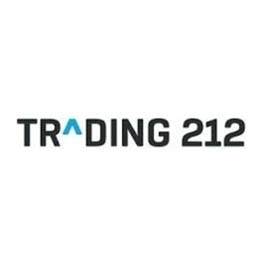
🤴 Trading 212 is Used By: 15,000,000
⚡ Trading 212 is Regulated by: Financial Conduct Authority (FCA), Financial Supervision Commission (FSC)
💵 What You Can Trade with Trading 212: Forex, Minors, Cryptocurrencies, Majors, Exotics, Indices, UK Stocks, US Stocks, Energies, Metals, ETFs, Bonds,
💵 Instruments Available with Trading 212: 10000
📈 Trading 212 Inactivity Fees: No
💰 Trading 212 Withdrawal Fees: No
💰 Trading 212 Payment Methods: Credit cards, MasterCard, VISA, Debit cards, Bank Transfer, Electronic wallets (eWallets), PayPal, Skrill, Dotpay, Carte Bleue, Direct eBanking, Apple Pay, Google Pay, iDeal, Giropay,
Trading 212 Risk warning : CFDs are complex instruments and come with a high risk of losing money rapidly due to leverage. 76% of retail investor accounts lose money when trading CFDs with this provider. You should consider whether you understand how CFDs work and whether you can afford to take the high risk of losing your money.

🤴 Admiral Markets is Used By: 10,000
⚡ Admiral Markets is Regulated by: Financial Conduct Authority (FCA), Cyprus Securities and Exchange Commission (CySEC), Australian Securities and Investments Commission (ASIC), Jordan Securities Commission (JSC)
💵 What You Can Trade with Admiral Markets: Forex, Minors, Cryptocurrencies, Majors, Exotics, Indices, UK Stocks, US Stocks, Energies, Metals, ETFs, Bonds,
💵 Instruments Available with Admiral Markets: 148
📈 Admiral Markets Inactivity Fees: No
💰 Admiral Markets Withdrawal Fees: No
💰 Admiral Markets Payment Methods: Credit cards, Visa, MasterCard, Debit cards, Bank Transfer, Electronic wallets (eWallets), PayPal, Neteller, Skrill, SOFORT, Safety Pay, Przelewy, iDEAL, Klarna,
Admiral Markets Risk warning : Losses can exceed deposits

🤴 SpreadEx is Used By: 10,000
⚡ SpreadEx is Regulated by: Financial Conduct Authority (FCA)
💵 What You Can Trade with SpreadEx: Forex, Minors, Cryptocurrencies, Majors, Exotics, Indices, UK Stocks, US Stocks, Pennystocks, Energies, Metals, Agriculturals, ETFs, IPO, Bonds, Options, Treasuries,
💵 Instruments Available with SpreadEx: 15000
📈 SpreadEx Inactivity Fees: No
💰 SpreadEx Withdrawal Fees: 0, minimum £50
💰 SpreadEx Payment Methods: Credit cards, VISA, Switch, Maestro, Debit cards, Bank Transfer, Payoneer,
SpreadEx Risk warning : Losses can exceed deposits

🤴 Markets.com is Used By: 4,000,000
⚡ Markets.com is Regulated by: Cyprus Securities and Exchange Commission (CySEC), Financial Sector Conduct Authority (FSCA), Financial Conduct Authority (FCA), Australian Securities and Investments Commission (ASIC), BVI Financial Services Commission (BVI FSC)
💵 What You Can Trade with Markets.com: Forex, Minors, Cryptocurrencies, Majors, Exotics, Indices, UK Stocks, US Stocks, Energies, Metals, Agriculturals, ETFs, Bonds,
💵 Instruments Available with Markets.com: 2200
📈 Markets.com Inactivity Fees: Yes
💰 Markets.com Withdrawal Fees: No
💰 Markets.com Payment Methods: Credit cards, Debit cards, Bank Transfer, Electronic wallets (eWallets), Skrill, Neteller, PayPal,
Markets.com Risk warning : 67% of retail investor accounts lose money when trading CFDs with this provider. You should consider whether you can afford to take the high risk of losing your money
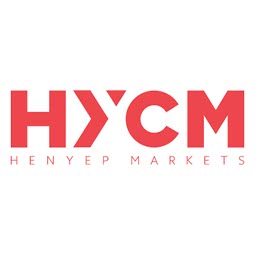
🤴 HYCM is Used By: 10,000
⚡ HYCM is Regulated by: Financial Conduct Authority (FCA), FCA reference number 186171, Cyprus Securities and Exchange Commission (CySEC), CySEC license number 259/14, Cayman Islands Monetary Authority (CIMA), CIMA reference number 1442313, Dubai financial services authority (DFSA), DFSA license number 000048
💵 What You Can Trade with HYCM: Forex, Minors, Cryptocurrencies, Majors, Exotics, Indices, UK Stocks, Energies, Metals, Agriculturals,
💵 Instruments Available with HYCM: 100
📈 HYCM Inactivity Fees: Yes
💰 HYCM Withdrawal Fees: No
💰 HYCM Payment Methods: Credit cards, Debit cards, Bank Transfer, PayPal, WebMoney, Payoneer,
HYCM Risk warning : Losses can exceed deposits

🤴 Swissquote is Used By: 300,000
⚡ Swissquote is Regulated by: Swiss Financial Market Supervisory Authority (FINMA), Commission de Surveillance du Secteur Financier (CSSF), Financial Conduct Authority, Dubai Financial Services Authority (DFSA), Hong Kong Securities and Futures Commission (SFC), Monetary Authority of Singapore (MAS)
💵 What You Can Trade with Swissquote: Forex, Minors, Majors, Exotics, Indices, UK Stocks, US Stocks, Pennystocks, Energies, Metals, Bonds,
💵 Instruments Available with Swissquote: 100
📈 Swissquote Inactivity Fees: No
💰 Swissquote Withdrawal Fees: $10
💰 Swissquote Payment Methods: Credit cards, Debit cards, Bank Transfer, Payoneer,
Swissquote Risk warning : Losses can exceed deposits
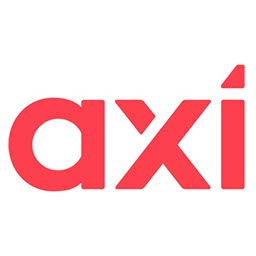
🤴 Axi is Used By: 10,000
⚡ Axi is Regulated by: Financial Conduct Authority (FCA), Australian Securities and Investments Commission (ASIC), Dubai Financial Services Authority (DFSA), Financial Service Authority of St. Vincent and the Grenadines (FSA)
💵 What You Can Trade with Axi: Forex, Minors, Cryptocurrencies, Majors, Exotics,
💵 Instruments Available with Axi: 100
📈 Axi Inactivity Fees: No
💰 Axi Withdrawal Fees: No
💰 Axi Payment Methods: Credit cards, Debit cards, Bank Transfer, Neteller, BPAY, UnionPay, Payoneer,
Axi Risk warning : Losses can exceed deposits
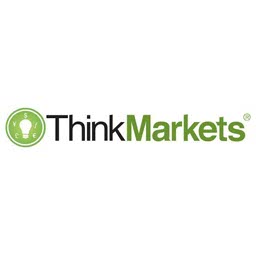
🤴 ThinkMarkets is Used By: 500,000
⚡ ThinkMarkets is Regulated by: Financial Conduct Authority (FCA), Australian Securities and Investments Commission (ASIC), Financial Sector Conduct Authority (FSCA), Financial Services Authority Seychelles (FSA), TF Global Markets (UK) Limited is authorised and regulated by the Financial Conduct Authority FRN 629628, TF Global Markets (AUST) Limited is the holder of Australian Financial Services License number 424700, TF Global Markets (South Africa)(Pty) Ltd is an Authorised Financial Services Provider (FSP No 49835),TF Global Markets Int Limited Is authorised and regulated by the Financial Services Authority Firm Reference Number SD060
💵 What You Can Trade with ThinkMarkets: Forex, Minors, Cryptocurrencies, Majors, Exotics, Indices, Energies, Metals,
💵 Instruments Available with ThinkMarkets: 1500
📈 ThinkMarkets Inactivity Fees: Yes
💰 ThinkMarkets Withdrawal Fees: No
💰 ThinkMarkets Payment Methods: Credit cards, Debit cards, Bank Transfer, Electronic wallets (eWallets), Neteller, Skrill, BitPay,
ThinkMarkets Risk warning : CFDs are complex instruments and come with a high risk of losing money rapidly due to leverage. 71.89% of retail investor accounts lose money when trading CFDs with this provider. You should consider whether you understand how CFDs work and whether you can afford to take the high risk of losing your money
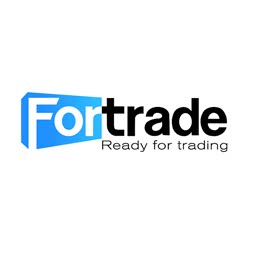
🤴 ForTrade is Used By: 1,000,000
⚡ ForTrade is Regulated by: Financial Conduct Authority (FCA), Cyprus Securities and Exchange Commission (CySEC), Investment Industry Regulatory Organization of Canada (IIROC), National Bank of the Republic of Belarus (NBRB)
💵 What You Can Trade with ForTrade: Forex, Minors, Cryptocurrencies, Majors, Exotics, Bonds,
💵 Instruments Available with ForTrade: 100
📈 ForTrade Inactivity Fees:
💰 ForTrade Withdrawal Fees: No
💰 ForTrade Payment Methods: Credit cards, Debit cards, Bank Transfer, PayPal, Neteller, Payoneer,
ForTrade Risk warning : Your capital is at risk
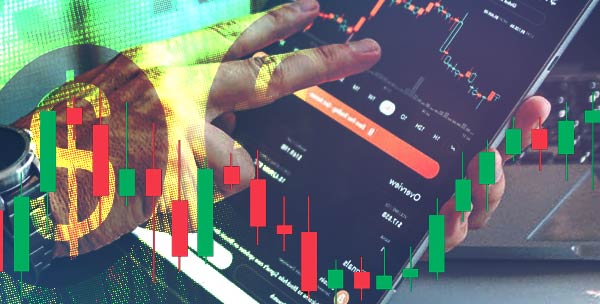
Beginner traders who are just getting their feet wet in live market conditions are the ideal candidates for opening one of these accounts. In addition to that, it can be utilised by seasoned traders who wish to put their trading strategies to the test.
In foreign exchange, the number of currency units that you are willing to buy and sell is referred to as the lot size. It is essential to keep in mind that the size of your lot has a direct impact on and determines the level of risk you are willing to put your money at, and it is important to keep this in mind at all times.
Trading currencies on the forex market operates in the same manner as trading with regular currencies. You can't buy just one unit of currency; rather, you have to purchase it in what are known as lots. In foreign exchange, one standard lot is equal to 100,000 units of the currency being traded. There are also smaller lot sizes known as mini, micro, and nano.
Understanding the concept of lot size in forex is absolutely necessary if one wishes to trade the foreign exchange market in an effective manner.
Before you buy any additional euros or dollars, you should make sure to check with your broker to determine the cost per pip, which will vary from broker to Forex broker.
When compared to a micro lot, a nano lot is one hundred times less. There are only a select few brokers in the Forex market that will let you trade using nano lots. One tenth of a micro lot is equal to one nano lot, and one nano lot is equivalent to one hundred units of currency.
Note that each pip is equivalent to $0.001 when dealing with nano lots.
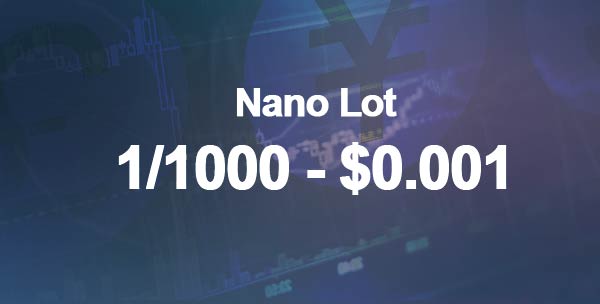
Take responsible care of your finances and always keep an eye on how you spend your money.
The size of a Forex trader's lot reflects how much money they are willing to risk, and the larger the lot, the more danger the trader is willing to expose themselves to. The size of a trader's account is another indicator of how much of an effect the trader's activities on the currency market can have on their personal finances.
A significant number of foreign exchange accounts are started with a balance that is lower than $1,000.
You shouldn't risk more than 1% of your total capital when you're just starting out, and you should probably risk a lot less than that. Consider the following scenario: you have $500 to invest, and the smallest lot size available to you is a micro lot.
Let's say that you limit the amount of money at stake in each trade to 1%. This indicates that the most you can risk on any given trade is $5, which works out to approximately $1,000 over the course of a decade.
If you are trading in U.S. dollars, euros, or pounds, the maximum amount of risk you can take on any given trade is 50 pip. It is possible that a trade will call for a stop loss of 75 pips or even 100 pips at certain times. If the maximum number of points that you are willing to risk is restricted, then it is likely that your trades will be terminated more frequently than is desirable.
You are able to fine-tune the size of your lot to the specific transaction that you are engaging in by putting the power of nano lots to work for you. You are free to choose a stop loss that is appropriate for the trade that you are executing rather than basing your decision on the size of your trading account.
It is essential that you keep your risk low in the beginning, regardless of whether you are certain that trading Forex is right for you or if you are just experimenting with this.
If you want to get your foot in the door in the world of Forex, it is essential to get your feet wet with a modest investment and trade with the appropriate level of risk. You can begin trading with a very small account and still be able to take on the appropriate level of risk at the appropriate time if you use nano lots.
Opening a nano Forex trading account with a very limited amount of capital is the best way to get started in the exciting world of online trading. When you are trying to persuade your spouse or other family members to support you financially, starting with a small account can be an added benefit for you.
Beginning with a small account is a great way to limit the amount of money you lose while you are still gaining experience. This is true even if you only have to answer to yourself.
Even if you eventually move up to trading larger lots, it is likely that you will still experience some challenging times in the beginning of your trading career. The process of trading operates in exactly this manner.
Trading with nano lots may make it easier for you to get back into the swing of things. Additionally, it can assist you
Backtesting and practise trading are two methods that, in my opinion, are excellent ways to determine whether or not a trading system has a potential to generate a profit. However, as you are aware, there is no way to know for certain unless you actually begin to put some real money behind it.
It's possible that you'll find a system backtests well and that you'll also be able to demo trade it successfully. But if you don't know how to deal with the market at the right time, you won't be able to keep your head above water when even the smallest amount of money is at stake.
You are able to determine whether or not a trading system is something that is actually usable when the conditions of real-world trading are replicated. You can determine whether or not it is worthwhile to trade with the possibility of losing a significant amount of money by first speculating on Forex trading with a modest sum of money rather than a significant amount of money.
When buying or selling currency, a trader in foreign exchange will typically deal in lots, which are discrete units of measurement. Therefore, we can say that the unit of trade in forex is denoted by the symbol 'Lot.'
The foreign exchange market utilises four distinct types of lots.
In addition to standard lots, there are smaller lots known as mini, micro, and nano lots.
One nano lot is equal to one tenth of a micro lot, and it is comprised of one hundred units of the base currency of the currency pair.
For instance, if a trader executes an order for a micro lot, that trader will buy or sell one hundred units of the base currency of the currency pair in question.
Nano forex accounts can sometimes be opened with as little as a ten dollar minimum balance, and the associated risks are relatively low for trades of this size. Forex nano accounts allow newcomers to the forex market to get their feet wet with lot sizes as low as 100 currency units. This type of account is suitable for novice traders.
A Forex nano account is typically utilised by novice foreign exchange traders who are interested in gaining exposure to the live forex trading environment but do not wish to risk a significant amount of capital. Nano forex accounts give traders the opportunity to trade in nano lots. A nano lot is equal to one tenth of a micro lot and one hundredth of a mini lot. Traders can use nano forex accounts to make trades of any size.
One tenth of a standard lot is equal to 10,000 units of a currency's base unit, which is what the Forex market refers to as a mini lot. Therefore, if you trade using a mini lot, you will make a smaller profit but also a smaller loss; this is why it is called a 'mini lot.'
When purchasing a mini lot, one pip is equivalent to one dollar. When purchasing EURUSD with 0.10 lot, this indicates that you have purchased 10,000 EUR. Let's say you paid 1.1500 for one standard lot of EUR/USD and bought it at that price. The price has risen to 1.1800 with 1 mini lot as of right now.
The correct response is 'a lot,' as in 'the mini lot,' in which case the price of each pipette is $1.
That means you made a profit of $30 from the EURUSD trade, which is calculated as thirty dollars multiplied by one dollar.
A micro lot in foreign exchange trading is equal to one thousand different currency units and has a size of one thousandth of one centimetre.
Note that each pip is equivalent to $0.10 when dealing with micro lots.
Few Forex brokers allow you trade nano lots, but there are some well regulated reputable brokers that support nano trading like IC Markets are well known for being a reputable broker that supports nano Forex trading accounts. Flexibility is essential, and nanolots can provide that, but nano lot trading does have trading risks, which traders must be aware of. On the order entry screen, they also provide a helpful risk calculator, which is a feature that is offered. There are other brokers available to you that provide you with these options as well; however, it is not as simple to learn about these other brokers.
It is essential to maintain a trading account with a nano lot broker if you are looking for a broker to begin your financial trading career with. Even if you reach the point where you can start trading lots of the standard size, you should probably keep the nano lot account open just in case you find that you need it at some point in the future.
Whatever the circumstances may be, I am of the opinion that the ability to trade nano lots ought to be included in the tool set of every Forex trader.
We list some Nano Lot Size Forex Brokers related brokers below.
If you would like to see Nano Lot Size Forex Brokers compared against each you can do so by clicking on the links below.